Foods that affect your metabolism
You go to the gym; get eight to nine hours of sleep a night; and eat the right foods. Yet, you feel fatigued and can’t seem to drop the pounds. What gives? (Here are 7 signs your diet is making you tired.)
Well part of it may be your metabolism, which is all the biochemical processes that run your body—including those that convert food and drinks into energy. The slower your metabolism, the fewer calories you might burn.
There are everyday foods that may affect your metabolism—even those you think are relatively healthy. Here are 10 most common foods and beverages that may affect your metabolism.

Diet soda
The news is grim: With each passing year, your natural calorie burn slows further. It’s one of the reasons why many people find that as they age, they gain weight even though they’re eating the same amount. Artificial sweeteners may be a problem because they can change gut bacteria, which could cause blood sugar to spike and thereby raise your risk for type 2 diabetes and obesity, according to a 2014 study published in Nature. Instead, opt for water.
Not drinking enough water is a major metabolism mistake. “When you feel thirsty, you’re likely already one to two percent dehydrated,” says Amy Gorin, MS, RDN, a New York City-based registered dietitian nutritionist. “Water may help you feel fuller and help you eat less at meals. It might even help temporarily boost pre-meal metabolism.” (Make sure you don’t have one of the 9 medical causes of slow metabolism.)
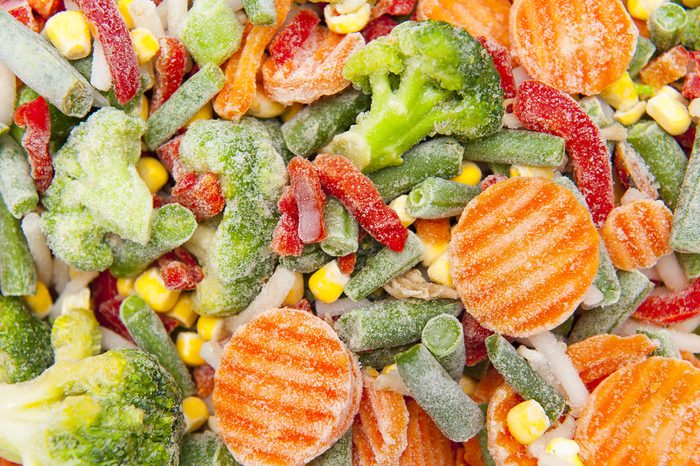
Low-calorie frozen meals
“Some of my clients think it’s a good idea to eat frozen meals with just 150 to 200 calories, but instead of helping you lose weight, this type of meal when eaten regularly may actually slow metabolism because you need to eat enough calories throughout the day to help keep your metabolism revving,” says Gorin. Frozen foods also can be loaded in sodium (check the label) or lacking in fiber. If you’re going to eat a frozen meal, Gorin suggests pairing it with some pulses (beans, lentils, chickpeas, or dried peas). “They offer satiating fiber and protein—and eating just ¾ cup of them daily could amp up your weight loss. Also, add some veggies to your meal—they’re full of water, which is hydrating and filling.” See here for more ways to get a metabolism of a 25-year-old.
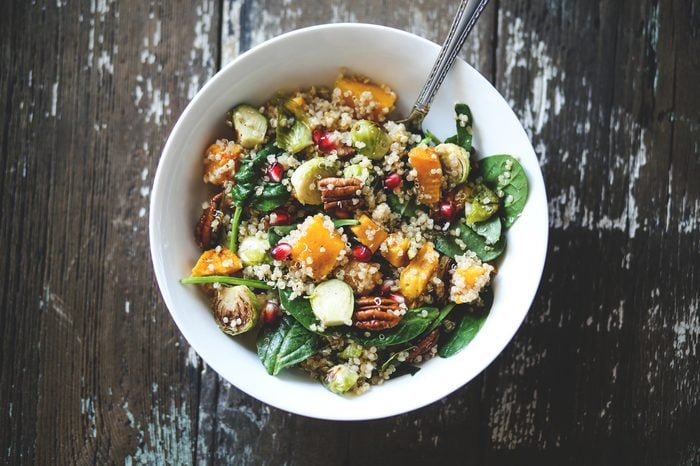
Low protein diets
“Your body expends a good amount of energy to break down and store protein, so make sure you’re getting some protein (about 20 to 30 grams) at each meal and spreading this throughout the day,” says Gorin, who recommends starting your day with a high-protein smoothie with vanilla bean, which boasts 21 grams of protein.

Bland food
Being healthy doesn’t mean eating tasteless food. Spices are one of the best ways to add flavor to healthy, fresh produce without packing on calories. Remember, your diet shouldn’t be a temporary change, it should be a long-term pattern of healthy eating, says Gorin: That’s not something you can achieve if you don’t actually like what you’re eating. Adding some spice to your food also gives your metabolism a kick. “In one study [published in the journal Physiology & Behavior], people eating about ½ teaspoon of red pepper (versus people not having any) had bigger post-meal calorie burn,” says Gorin. Here are more way to jump-start your metabolism.

Alcohol
You probably already know that alcohol is nothing but empty calories, but you might not realize that drinking booze also irritates your gastrointestinal tract, which in the long term can damage your body’s ability to absorb nutrients, vitamins, and minerals from the foods you eat. Instead opt for a green tea, which seems to help metabolism thanks to a substance called EGCG (a type of catechin) and the small amount of caffeine it contains. “Studies show that the caffeine in tea may provide a small metabolism benefit for up to 24 hours,” explains Gorin. If you’re looking for more of a buzz try kombucha, which is fermented tea and sugar. It has naturally occurring alcohol along with a host of probiotics (aka healthy, metabolism-boosting bacteria).

Wheat
Some people are sensitive to wheat—and it’s in a surprising number of foods. “If the body is sensitive to a food that is being consumed on a regular basis, it will build up antibodies to those foods, fighting them as if they are a foreign invader in the body,” explains Christa Orecchio, clinical and holistic nutritionist and founder of The Whole Journey, in Encinitas, California. “This puts an extreme inflammatory burden on the gut, liver, and immune system and subsequently, the thyroid, which is the metabolic regulator of the body.”
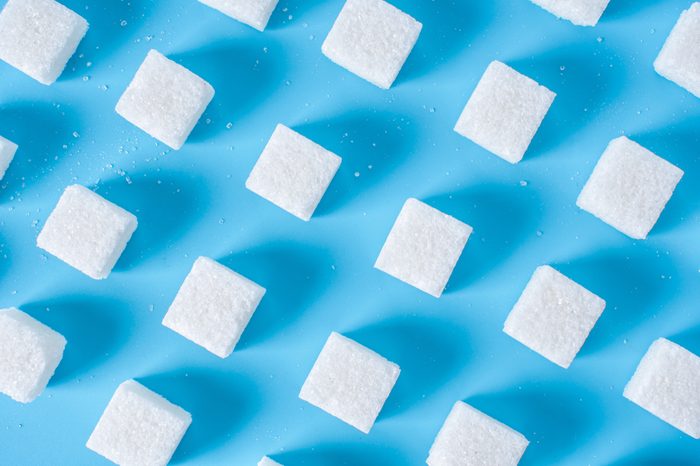
Sugar
You already know that you should try not to consume large amounts of added sugar, but you might not realize that it also promotes inflammation in the body. “The World Health Organization and American Heart Association recommends 25-36 grams of sugar per day; currently, most of us are consuming at least 48 teaspoons,” says Courtney Daylong, holistic health coach and founder of Totally Fit Mama. So how do we fix this? “To satisfy that sugar craving, reach for real fruit.” Yes, it still contains sugar, she says, but it’s not concentrated like it is in processed foods. “You will be getting the fiber (which is a big metabolism helper to detoxify the body and get things ‘moving’), along with being antioxidants, vitamins, and minerals, all things processed sugar lacks.”
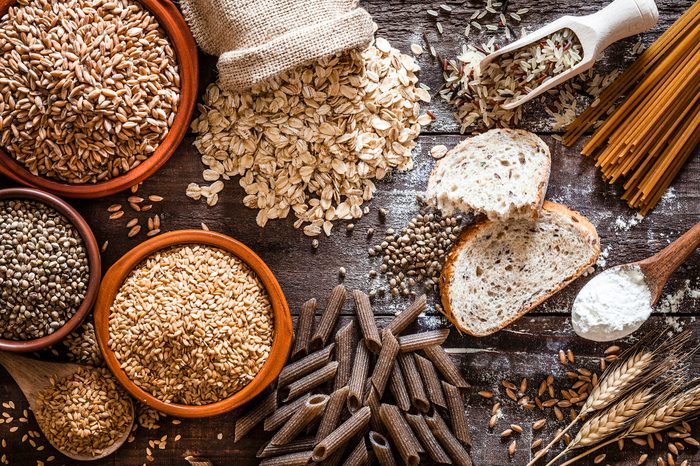
Refined starches
Not all carbs are created equal. Refined carbs—think white bread and white rice—have had their whole grains extracted during processing. Refining also removes fiber and pretty much all nutritional value. It’s important to minimize refined carbs and instead opt for complex carbs like whole grains, vegetables, fruits, and beans. “These complex carbs will help keep you full and will help keep your blood sugar stabilized longer,” says Daylong. Note that if you’re looking to trim down, opt for non-starchy vegetables for the bulk of your carbs (think eggplant, broccoli, asparagus, and hearts of palm). (Here are the signs you’re eating too many carbs.)
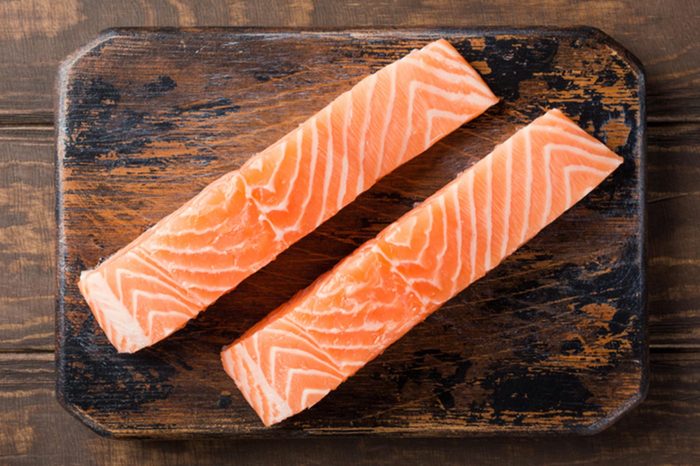
Omega-6 fats
Daylong believes our diets contain too many omega-6 fatty acids—think vegetable oils, chicken, cereal grains—and without the balance of healthy omega-3 fats, the result can lead to inflammation, which interferes with your metabolism. “Omega-6s are necessary to balance omega-3s, but most of us are out of balance due to all the processed foods we eat,” she says. She recommends eating fatty fish like salmon or sardines a few times each week. “Walnuts and flaxseeds are also higher in omega-3s. Quality sourced omega-3 supplements can also be of benefit. All of this will work to naturally fight inflammation.”
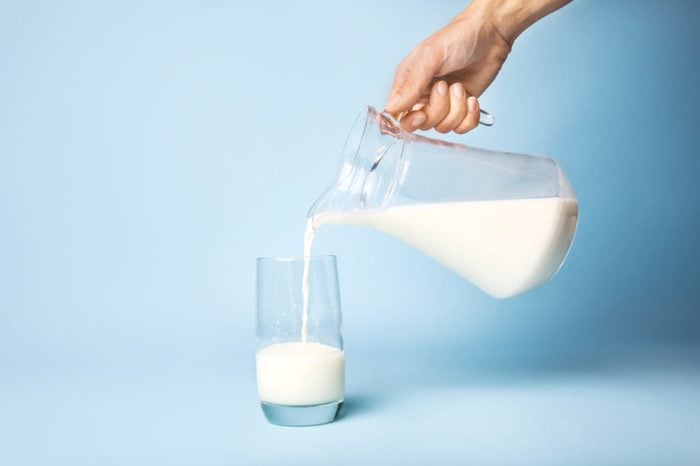
Dairy
Some people don’t process high levels of dairy protein (casein) or sugar (lactose) very well, which is why they find that dairy can lead to inflammation and bloating. If you’re worried that dairy is interfering with your calorie burn, try experimenting with calcium-fortified nut milks like unsweetened almond milk. (Next, find out 50 simple ways to boost your metabolism.)
